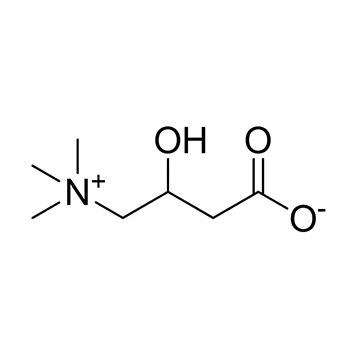
L-Carnitine is a type of amino acid that benefits energy levels by transporting fatty acids into the mitochondria where they can be burned up and used as fuel. For this reason, many take carnitine as a weight loss supplement to help bump up fat burning.
Carnitine occurs in two forms, or isomers: L-Carnitine and D-Carnitine. L-Carnitine is the active form that plays a role in energy metabolism and production. It is produced within the body, but it can also be taken as a supplement or found in many different protein foods as well.
In supplement form, it’s available as a capsule, liquid or even injectable. A deficiency in carnitine can be caused by an inadequate intake, excess loss through diarrhea or dialysis, liver disorders, the use of certain medications, and some genetic disorders.
Additionally, because it is primarily found in animal products, vegans and vegetarians are at a higher risk of deficiency.
Although many people take L-carnitine as a way to speed up weight loss and fat-burning, carnitine benefits include enhancing brain function, preventing muscle
damage, regulating blood sugar and increasing endurance as well.
1.Promote fatigue recovery
2.2.Enhances Weight loss
3.Boost stamina
4.4.Good for healthcare of heart and blood vessels.
5.Good to eliminate the fatty liver
6.6.Delay aging
7.Cure hemorrhagic shock
8.As a nutrition supplement
|
Food Category No |
Food Name |
Uage Amount |
|
01.03.02 |
Modified Milk Powder(Except milk powder ofr children) |
300mg/kg~400mg/kg |
|
|
Modified Milk Powder(Milk powder for children only) |
50mg/kg~150mg/kg |
|
14.02.03 |
Fruit and Vegetable juice (meat) beverages(including fermented products,etc) |
600mg/kg ~3000mg/kg |
|
14.03.01 |
Milk beverage |
600mg/kg~3000mg/kg |
|
14.04.02.01 |
Special-purpose drinks(sports drinks only) |
100mg/kg~1000mg.kg |
|
14.04.02.02 |
Flavored drink |
600mg/kg~3000mg/kg |
|
14.06 |
Solid drinks |
6000mg/kg~30000mg/kg |
9.As a feed additives
|
Content specifications |
Applicable animals |
Recommended dosage in compound feed or total mixed diet(calculated by vitamins) |
Maximum limit in compound feed or total mixed diet(calculated by vitamins) |
|
Calculated by Vitamins |
|||
|
97.0%~103.0% |
Farmed animals |
Pig 30~50 mg/kg (suckling pig 300~500 mg/kg) Poultry 50~60 mg/kg (Chicks within one week of age 150 mg/kg) Carp 5~10 mg/kg Rainbow trout 15~120 mg/kg Salmon 45~95 mg/kg Other fish 5~100 mg/kg (calculated by L-Carnitine) |
Pig 1000 mg/kg Poultry 200 mg/kg Fish 2500 mg/kg (Used alone or simultaneously,calculated by L-Carnitine ) |
Nutritional Supplements, Sports Nutrition, Protein Shake, Food and Beverages, Amino Acid Supplement, Medical Usage, Pharmaceutical field
There are several different forms of carnitine available. Here are a few of the most common types:
Acetyl-L-Carnitine HCL: This type of carnitine is thought to benefit brain health and memory and has been processed so that it’s able to easily pass the blood-brain barrier.
DL-Carnitine HCL :This type is used for promote fatigue recovery,boost stamina,enhances weight loss,boost stamina,delay aging.
L-Carnitine L-Tartrate: This type is often found in sports supplements, thanks to its ability to reduce muscle soreness and boost physical performance.
Propionyl-L-Carnitine HCL: This form helps increase levels of nitric oxide in the body, which dilates the blood vessels to promote better blood flow.
L-Carnitine Fumarate: Preliminary research suggests that this type of carnitine could help support bone health to protect against age-related bone loss.